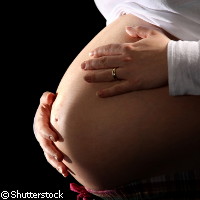Europeans investigate impacts of toxic exposures on babies
An EU-funded team of researchers is successfully investigating the impacts on babies of exposure to environmental and food-related toxic chemicals during pregnancy, as well as well how these exposures affect the risk of developing childhood cancers and immune disorders. The NEWGENERIS ('Development and application of biomarkers of dietary exposure to genotoxic and immunotoxic chemicals and of biomarkers of early effects, using mother-child birth cohorts and biobanks') project has received almost EUR 13.6 million under the 'Food quality and safety' Thematic area of the Sixth Framework Programme (FP6). Launched in 2006, the NEWGENERIS project is now fast approaching its target to gather gene-rate data from around 1 000 mothers and their infants. The project partners say they will use the information that is being collected from five European countries (EU Member States Denmark, Greece, Spain and the UK, plus Norway) to assess the impact of dietary chemicals and components on child health. Coordinated by Maastricht University in the Netherlands, the NEWGENERIS network is made up of 25 partners from 16 European countries including Croatia, Greece, Hungary, Norway, Slovakia, Spain and the UK. According to the project team, researchers are becoming more and more interested in investigating the effects of in utero exposures on both adult and child health. Past studies have shown that maternal exposures can modulate gene expression in the foetus. Researchers have speculated that adaptive responses in the foetus to exposures in the womb could trigger changes that affect the future health of a child. An example where in utero exposures seemingly affect the risk of cancer is infant leukaemia. In this case, chromosomal abnormalities emerge during the development of the foetus, while epigenetic processes such as DNA (deoxyribonucleic acid) methylation (a type of chemical modification of DNA that is stable over rounds of cell division but does not involve changes in the organism's underlying DNA sequence) affect gene activity and offer alternative pathways whereby early-life exposures could influence disease risk. Here is where NEWGENERIS enters the picture. The project partners say that by providing data on prenatal exposures and establishing biomarkers of the effects of exposure, they will offer information on whether a given exposure results in changes that are indicative of an increased risk of disease. Just as significant is the partners' assessment of whether individual children are more vulnerable to genotoxic and immunotoxic challenges. The consortium has organised many events and workshops since its launch; the latest annual meeting was held in Stockholm, Sweden, in February. The meeting included a workshop on 'Oxidative stress in newborns and consequences for children's health', and a poster session. Participants included representatives from all partner organisations and members of the external advisory bodies. Covered at this meeting were various topics including 'Exposure assessment', 'Childhood disease cohorts', and 'Gene-environment interactions'. On the whole, NEWGENERIS will help decision-makers secure solid information about food safety, particularly with regard to how it affects children. The partners hope that their study 'will also be a powerful platform for the evaluation of environmental exposures that are food-borne, as well as other environmental agents', including the association of air and water pollution.



